How to Find Your Competitor’s Keywords
When you have a website, you have one primary goal: get users to your website. Whether you are doing affiliate marketing, selling a product or service or renting out ad space, you have to have eyes on your site before you can turn a profit. While there are many ways to get people to your site, organic search guarantees the best results.
To get organic search results, you need to target keywords related to your niche. Users search for these keywords through a search engine like Google, and if your site ranks high enough, they will usually click through to your site. There are many ways to find keywords, and you will want to find your own, but you should also use your competitor’s keywords as well.
What Are Competitor Keywords?
Competitor keywords are keywords for which your competitors rank. Sometimes these keywords are specifically chosen and targeted by your competitors, meaning they are publishing content that is optimized to rank for these search terms. Other times the keywords may be words for which they are unintentionally ranking.
Regardless of intent, if you know your competitors’ keywords, you can often target these keywords on your own site and outrank them. If you can outrank them, you can steal their visitors.
Competitor Keyword Research: An Introduction
In order to outrank your competitors, you will need to find their keywords. There are several methods for finding competitor keywords. You can do competitor keyword research free, and there are also several premium options that make the job easier.
If you are not researching what your competitors are doing, then you are only hurting yourself. If these keywords are working for the competition, then they can work for you as well.
How to Use Competitor Keyword Research to Improve Your Own Site
Once you discover your competitors’ keywords, you can create content that is better, more in-depth and highly optimized so that you can outrank them. You may be surprised to find that your competitors may rank for a certain keyword but have poorly optimized content. In some cases, it can be very easy for you to beat them.
In this article, we will outline:
- how to find your competitors
- how to find your competitors’ keywords
- how to analyze those keywords
- how to optimize your site so that you can outrank your competitors
Test your SEO in 60 seconds!
Diib is one of the best SEO tools in the world. Diib uses the power of big data to help you quickly and easily increase your traffic and rankings. We’ll even let you know if you already deserve to rank higher for certain keywords.
- Easy-to-use automated SEO tool
- Keyword and backlink monitoring + ideas
- Speed, security, + Core Vitals tracking
- Intelligently suggests ideas to improve SEO
- Over 500,000k global members
- Built-in benchmarking and competitor analysis
Used by over 500k companies and organizations:
Syncs with 
How to Find Your Competitors
Before you can find your competitors’ keywords, you must first find your competitors. These are the sites in your niche. These sites may or may not have similar goals to yours, but they are definitely targeting the same market.
You may be able to name a few of your competitors off the top of your head, such as the big names in your niche. But there are often many competitors you’ve never heard of, yet are still pulling in a lot of the market.
One of the easiest ways to find competitors is to do a Google search for some of your seed keywords. Sites on the first page or two of the SERPs (Search Engine Results Page) are likely in your niche and are some of your competitors. Don’t forget to look at the ads at the top of the results as well. These sites are also competitors. Here are a couple of examples of competitors for Shoe Carnival:
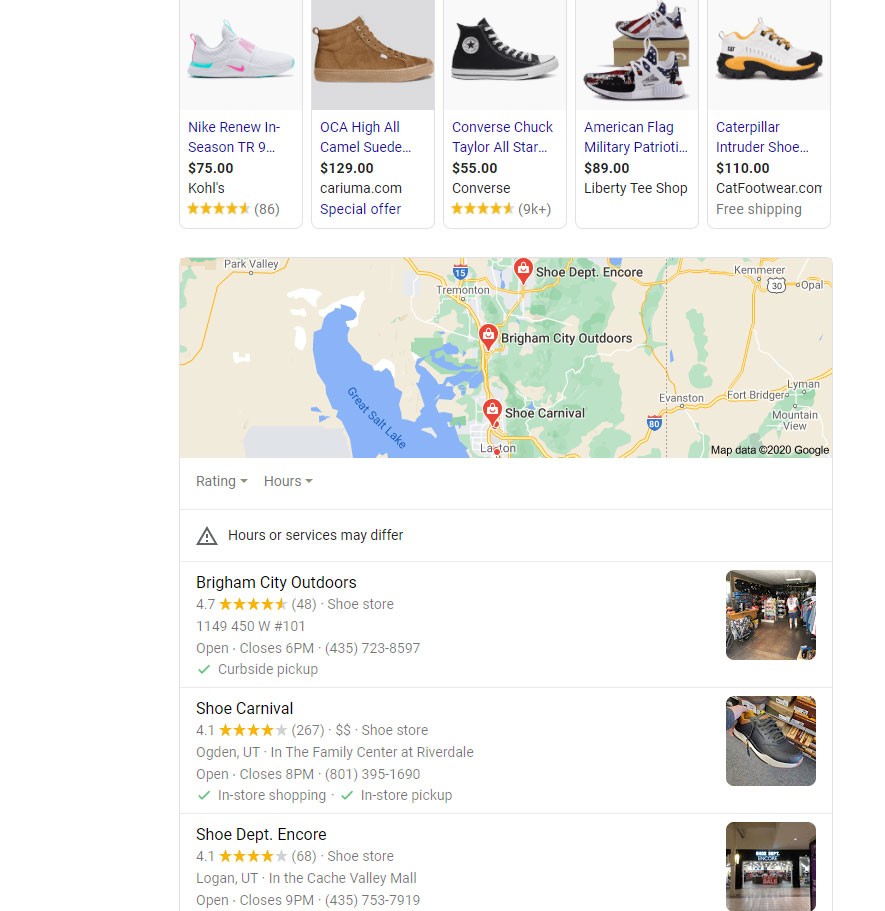
You can also use the “Related:” search operator on Google. Here you can enter your own site’s URL or the URL of any of your competitors, and it will pull up related sites.
Premium tools like Spyfu can also help you to find both your paid and organic competitors. These tools can give you more of an in-depth analysis of your competitors. Take a look at this example of SpyFu’s competitor tool results:
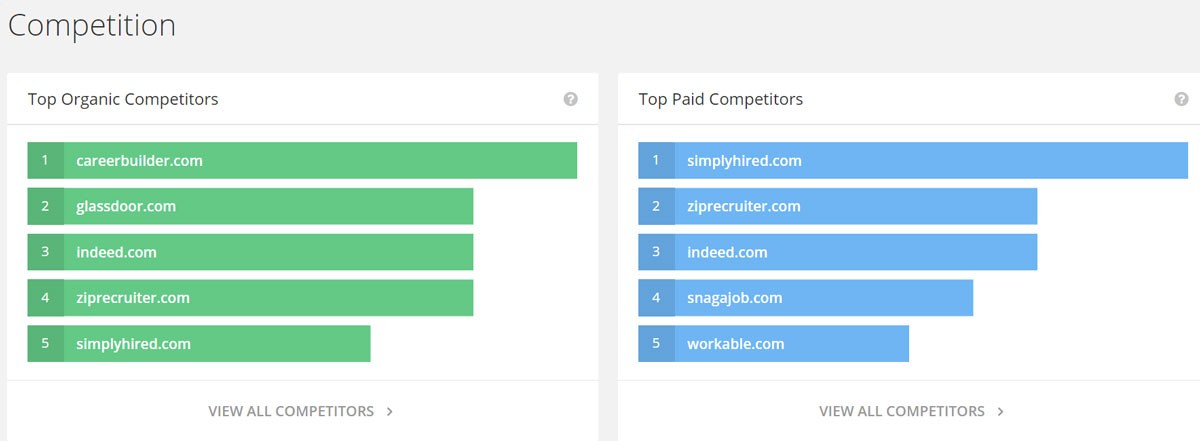
(Image Credit: SpyFu)
You Might Also Like
How to Find Your Competitors’ Keywords
Now that you have your list of competitors, it’s time to find their keywords. There are several strategies and tools to help you. Below, we will go over some of the most common.
SpyFu
SpyFu competitors are one of the top tools for competitor research. It is dedicated solely to helping you find out everything you can about your competitors so that you can improve your website’s rankings. Their site has an SEO research tool that lets you enter your competitors and will then give you a list of their top keywords.
SpyFu competitors let you choose up to three of your top competitors and look at their data together in a way that lets you see what types of content and marketing strategies are working for them. It can also tell you keywords that your competitors are ranking for that your site is not ranking.
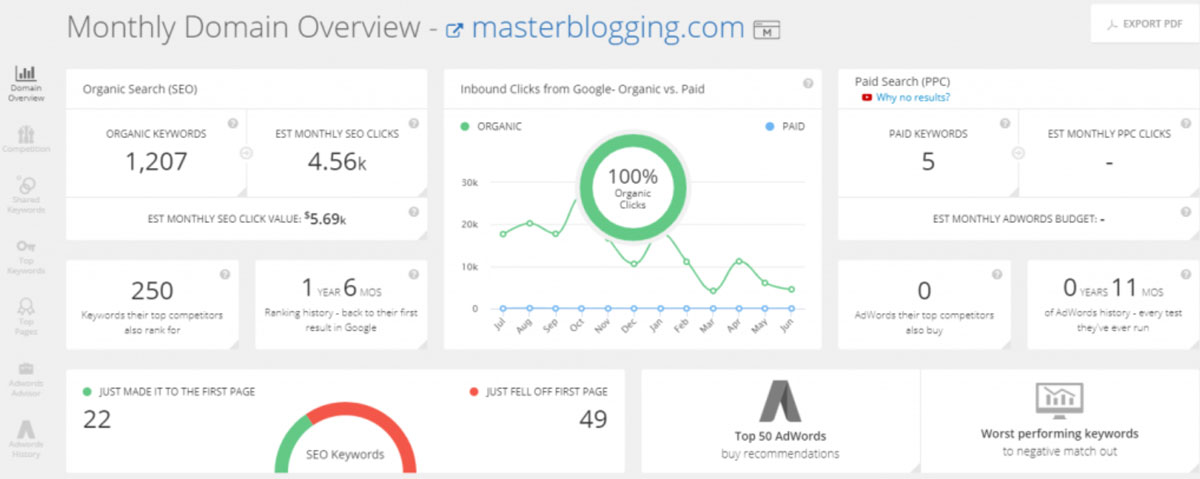
(Image Credit: StayMeOnline)
SEMrush
SEMrush has several tools that can help you. One tool lets you see your organic competitors. They also have a tool that lets you enter your competitors’ URLs and will then give you a report of all the keywords for which the sites rank in the top 20 on Google SERPs.
You can use this tool for free, but your searches will be limited. You can only search a few times a day and will only see a limited number of your results. If you want to do more comprehensive searches, you will need to get a paid account.
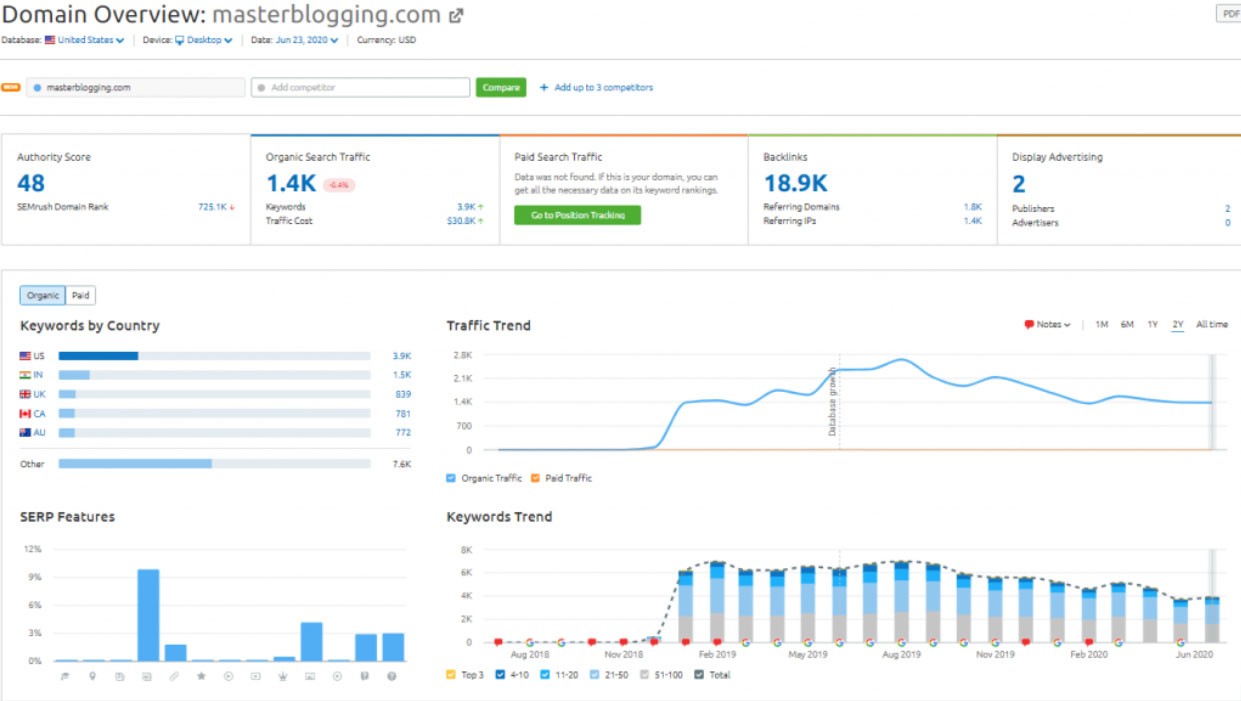
(Image Credit: StayMeOnline)
Ubersuggest
Ubersuggest is a free keyword research tool created by digital marketing guru Neil Patel. Unlike many other freemium tools, this product offers quite a bit for free. You will need a Google account to sign in to the service.
You can simply type in one of your competitor’s URLs, and it will give you a wealth of information. You can then see all of their organic keywords, where they rank for the keywords, the average monthly search volume and the number of visits they get for each keyword.
The tool also gives you an estimated SEO difficulty from 1-100, so that you can get an idea of how difficult it may be to outrank your competitor. You can purchase a subscription if you want even more features.
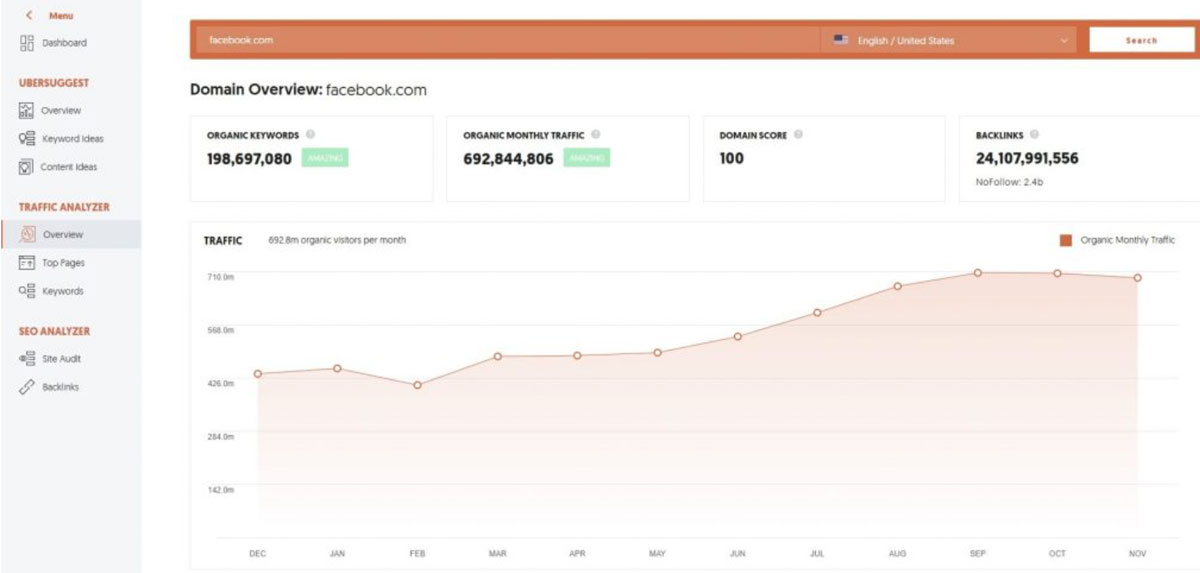
(Image Credit: W3 Lab)
Keyword Spy
Keyword Spy is another site to do competitor keyword research free. You can enter a competitor domain and discover organic keywords, monthly search, volume, traffic and more. The tool also gives you a cost per click (CPC) so that you can figure out which keywords are the most valuable.
Another helpful feature is that this tool gives you a list of your competitor’s competitors. It is a great way to find even more competition and steal their keywords. Keyword Spy also offers premium subscriptions that can help you track and organize all of this information.
Google Keyword Planner
The Google Keyword Planner is a free keyword research tool that gives you access to all sorts of information. You will need a Google account to get started. Once inside the tool, enter your competitor’s URL and choose “entire site.” From there, you can see their keywords and a competition estimate.
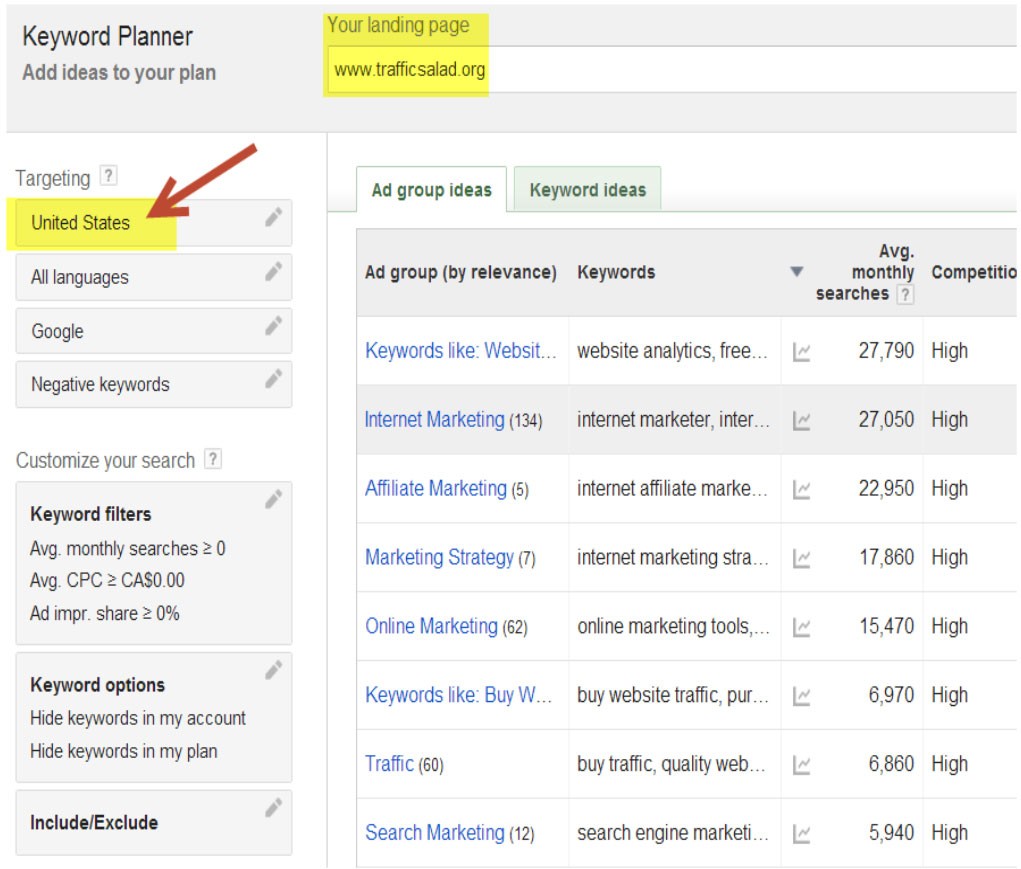
(Image Credit: Moz)
BuzzSumo
BuzzSumo is a powerful tool that can give you all sorts of insight into your competitors. The tool has a keyword feature that is currently in beta format, but it also offers a lot of extra information that you may want to use in addition to one of the tools above.
Particularly, BuzzSumo allows you to see your competitors’ content strategy. You can see how often they are publishing, what they are publishing, where they are promoting their content and where they are getting the most engagement. It can give you valuable information into where to find your audience.
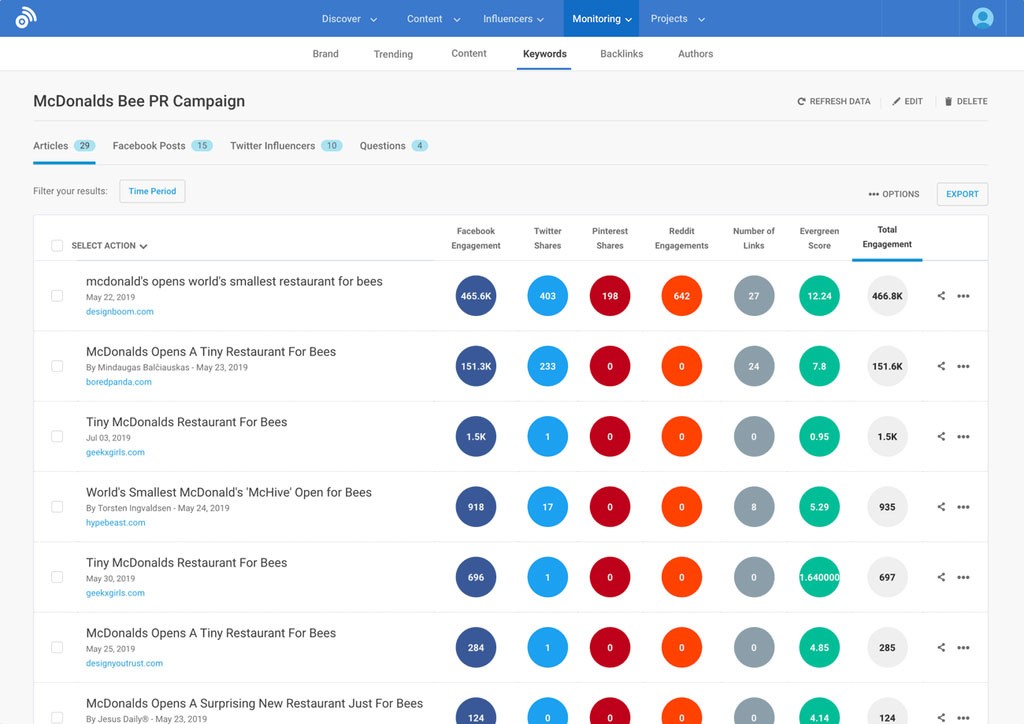
(Image Credit: BuzzSumo)
How to Analyze Your Competitors’ Keywords
Once you have a list of your competitors’ keywords, you need to analyze the words to see which are the best for you to target. You can use almost any of the tools listed above to analyze the keywords.
Before analyzing, you need to consider your own site. What is your domain authority? Knowledge of your website’s own rankings will let you know where to start when it comes to outranking others.
If your site is new, and you haven’t yet established a decent domain authority, you will want to first aim for what is termed “low-hanging fruit.” These are search terms that have low competition and higher search volume. It will be easier to rank for these terms. As your site grows, you can then try to rank for more competitive keywords.
How to Outrank Your Competitors
There are several steps to follow to outrank your competitors. The first part involves creating content, and the second part involves using SEO to help your site rank higher overall.
We hope that you found this article useful.
If you want to know more interesting about your site health, get personal recommendations and alerts, scan your website by Diib. It only takes 60 seconds.
Check Out Your Competitors’ Content
Once you have an idea of the keywords you want to rank for, it’s time to do a deep dive into their actual content. With each update to its algorithm, Google has stated that its main goal is providing searchers with quality content to help them solve their problems.
One of the best ways to outrank your competitors is to create better content. You will want to check for quantity and quality. Google often penalizes “thin content” or content that is only a few hundred words long and doesn’t thoroughly answer a question.
In other cases, the quality of the content may not be great. It may be poorly written or may not utilize SEO best practices, such as using the keyword in the header tags. You can easily improve on what your competitors are doing here. The most important thing is to take the keyword as an idea, but make the content your own. You cannot simply copy them – you have to outdo them.
Finally, your competitors may be ranking for a keyword they are not targeting. Their article may target another keyword entirely. For example, they may be targeting the keyword “best shoes for runners,” but may also be ranking for “best shoes for runners with high arches.” You can then create your own piece of content around the keyword they are not targeting, i.e., “best shoes for runners with high arches,” and easily outrank them.
Create Your Content
It is time to create your content. Your first goal here is to write a piece of content that thoroughly covers the topic. You do not want a piece that’s full of filler just to pad out a word count, but make sure that you give your readers plenty of information to solve a problem. Your content should typically be between 1000 and 2000 words, but the number may be longer or shorter depending on the topic and the standard used in your niche.
Make sure that your content follows all SEO best practices. Use your target keyword:
- near the beginning of your title
- in your meta description
- in a couple of header tags
- in your first sentence
- a keyword density between 0.5 – 3%
- in image titles
- in image alt-tags
- in your permalink
Do not use your keyword more than is recommended. Google will see this as keyword stuffing and will penalize you. However, you can and should use related keywords. These are synonyms or variations on your target keyword. Above all, make sure your content reads as if it was written for people, not search engines.
You can also improve your content by adding videos, infographics and anything else your readers may find helpful. Write in short paragraphs and remember to break up your text with images, bulleted lists and anything else that can improve the user experience. You want to do anything you can to increase the amount of time users spend on your site.
Optimize Your Site
You should make sure that you are following SEO best practices throughout your site. This will improve your site’s overall ranking and help you to outrank your competitors for your chosen keywords. There are several simple things you can do to make sure your site has the potential to rank.
First, you want to make sure that your site loads quickly. While Google doesn’t look at site time when it comes to ranking, it does look at how much visitors spend on your page. If your page loads slowly, visitors will usually hit the back button and move on to the next search result. There are several plugins that can improve your site speed.
Google also prefers sites that are optimized for mobile. The majority of users are on a mobile phone, so it is important that they can navigate your site on a mobile phone. Most platforms like WordPress and Squarespace can help to make sure your site is mobile-optimized. For instance, here is an image showing just one example of a mobile optimized option on Squarespace:

(Image Credit: AlternativeTo)
You should create internal and external links within your site. You do this by linking related content, both content you’ve created and content from other sites. If you have a page that is ranking well, it can pass on some “link juice” to your new page.
You also want to build backlinks. Google still assigns domain authority based on the number of other sites linking back to your site. You can build backlinks by guest-posting and finding other sites to link back to your site. Always take time to build high-quality backlinks through white-hat methods. Google will penalize you if you get black-hat or gray-hat links.
Lastly, make your site easy to navigate and use. If your website is aesthetically pleasing, easy to read and easy to navigate, then visitors will want to stay on your site longer. The longer time people spend on your site, the higher your conversions, and the better your SEO.
You can improve user experience by having simple, well-organized navigation menus. Use fonts and text colors that are easy for users to read. Keep your branding consistent throughout your website.
Competitor Keyword Research Never Ends
You have a list of competitors and their keywords. You have created your content and optimized your site for those keywords. You may even be starting to outrank your competitors for some of those keywords.
That is not the end of your journey. New websites are published every day. Your competitors are often doing the same thing you are doing. If you are at the top, you become a target. You have to stay vigilant to make sure your content is always the best available.
You also want to keep finding new competitor keywords. Your competitors may go in a direction you did not predict, and you may find some things you want to emulate. Keep researching and keep updating your website to reflect the current trends and stay ahead of the game.
Diib®: Research Your Competitor Keywords Today!
If you are not researching your competitors and their keywords, then you are doing your website a disservice. You will be surprised at the keywords you can find that will make it easy to outrank your competitors. Finding these keywords are a great way to build up the content on your site and keep it growing.



